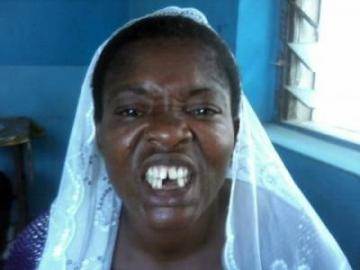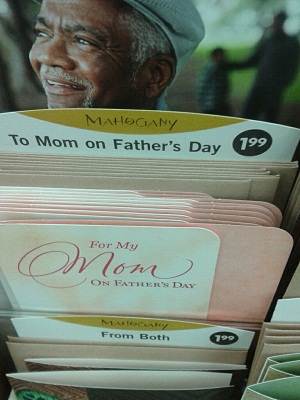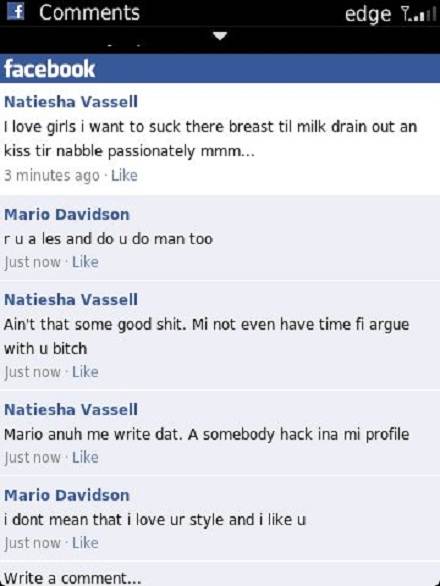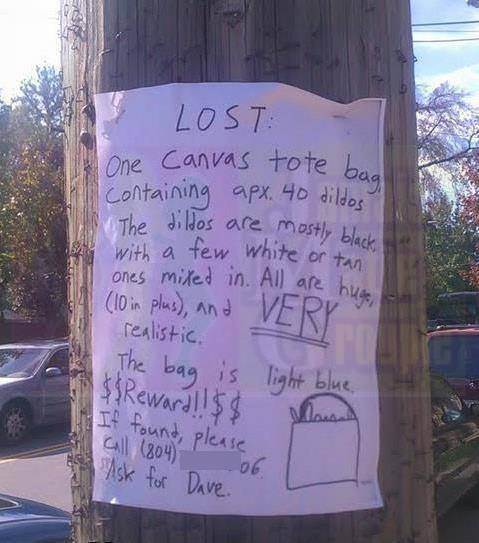RACIST, YES!
Met, I would like to know what u and the metters, (also the single moms) think of this card.
Isn’t it sad that Hallmark market them almost exclusively to the African-American community? And do single fathers expect mothers day card too? Or do u think its rasist?
Hallmark’s Mahogany Brand creates greeting cards specifically designed for African-American consumers. For this Father’s Day, they created 66 culturally relevant designs for African-Americans, and a few of these celebrated Black mothers. With 2 out of 3 Black homes solely ran by an African-American women, was Hallmark’s decision a good business choice, or an insult to African-Americans everywhere?
Hallmark spokesperson Kristi Ernsting said that Hallmark started selling these types of cards at the request of customers.
“Hallmark has long offered “Happy Father’s Day, Mom” and “Happy Mother’s Day, Dad” cards in our lines,” she says. “It’s a common request for people who have lost a parent and want a way to express to their living parent that he/she has been both mother and father to them.”
ECOMOG 2
The Liberian Conflict and the birth of ECOMOG (2)
By Emmanuel K. Bensah Jr.
AFRICA IS NOT A CONTINENT POOR, THE WONDERFUL CONTINENT IS MADE POOR
By: akoaso,Hamburg-Germa
More Quotes | Submit Quote
By E.K.Bensah Jr
Two weeks ago, former Liberian president Charles Taylor was convicted of providing moral support, weapons and operational help to Liberian-backed, drug-crazed rebels in Sierra Leone from 1996 to 2002, in exchange for blood diamonds. The following piece, by no means an exhaustive analysis, is a commentary I wrote back in 2000. Written then as a reminder of “African Solutions to African problems”, it serves not only as a timely reminder of the Liberian Conflict, but also of ECOWAS’ baptism of fire in pursuit of sub-regional peace and justice. This is the second part of a three-parter
How and why ECOWAS?
Thanks to the Treaty of Lagos of 1975, the Economic Community of West African States (ECOWAS) went into effect with 15 members; today it is 16 strong Its primary objective is to maintain peace by economic integration and is therefore, an unusual catalyst for peace. According to the article “West Africa Intervention Precedes Legitimacy” (Online), ECOWAS is “West Africa’s most comprehensive sub-regional economic organisation, and one of the largest of its kind in the world.”
According to the ECOWAS Treaty, its aim is “to promote cooperation and development in all fields of economic activity, the purpose, of which is to increase the standard of living of its people to enhance and maintain economic stability, to strengthen relations between its members and to contribute to progress and development on the African continent” (Art. 2) .
The Community aims to engender this ideal through the promotion of trade and liberalisation, “increased freedom of movement for its populations, transportation development and co-ordination, co-ordination of telecommunications, industrial and agricultural growth” .
With respect to the practice of diplomacy and security cooperation, the article argues that ECOWAS’ involvement in the Liberian conflict has by no means elevated it to the “main African governmental actor involved {in peacekeeping} . It maintains that in fact, “regional diplomacy of a sort has been carried out by various African Heads of State, such as in the Senegalese-Mauritania conflict”.
Nonetheless, in order to obtain a better understanding of how ECOWAS operated in the conflict, it is necessary to outline most of the major organs, which according to Klaas van Walraven (author of Containing Conflict…![]() were “relevant to the intervention in the Liberian Conflict” the so-called Authority with, in a subservient position, the Council of Ministers; the standing Mediation Committees, the organization’s Executive Secretary; the military intervention force itself, ECOMOG…; the Special Emergency Fund, the Special Representative of the Executive Secretary of his supporting Staff, the so-called Committee of Five and the Monitoring Committee of Nine, and finally, the ECOWAS Observer Group for the Liberian Elections” . Although an extensive analysis of these organs is necessary to understand how ECOWAS managed the conflict, I will eschew a comprehensive description of them as it falls beyond the scope of this paper. However, it would be very difficult to understand how decisions were made without referring to the Authority.
were “relevant to the intervention in the Liberian Conflict” the so-called Authority with, in a subservient position, the Council of Ministers; the standing Mediation Committees, the organization’s Executive Secretary; the military intervention force itself, ECOMOG…; the Special Emergency Fund, the Special Representative of the Executive Secretary of his supporting Staff, the so-called Committee of Five and the Monitoring Committee of Nine, and finally, the ECOWAS Observer Group for the Liberian Elections” . Although an extensive analysis of these organs is necessary to understand how ECOWAS managed the conflict, I will eschew a comprehensive description of them as it falls beyond the scope of this paper. However, it would be very difficult to understand how decisions were made without referring to the Authority.
According to Walraven, it is the “principal governing institution.” and its sessions are held once a year, “with the presidency and venue rotating among the membership” . It is, in fact the legislative and supervisory organ of the Community, and consequently has the “general direction and control of the Community’s executive functions and defines the norms and rules, which are binding for all other organs. In fact, Walraven goes as far as to categorically stating that with respect to the practice of intervention in Liberia, the Authority must be considered as the crucial ECOWAS institution”.
As for the Council of Ministers, it convenes at least twice a year and has the power to recommend to the Authority and may dictate to subordinate organs of ECOWAS. Although the Councils is comprised mostly of Ministers of Economic and Financial Affairs, “it may also serve as the cadre for meetings of the Ministers of Foreign Affairs and those of Defence.”
Perhaps, the most instrumental in the context of the intervention in Liberia was the office of Executive Secretary. In a way, this post is much like the UN’s Secretary General in the way its role is chiefly administrative, “while Article 8 provides for a policy-making role” .
In April 1990, the Standing Mediation Committee (SMC) was established on a ‘de facto basis, upon the initiative of Nigeria. The Committee, established by four ECOWAS Member States designated by the Authority, was explicitly intended as a permanent organ. The composition of the committee was to be revised every three years. In 1990, the SMC was thus made up of Nigerian, Ghana, Gambia, Togo and Mali, Walraven maintains that it was “in this organ that the decision was taken to establish ECOMOG, a plan that was prepared by a sub-committee on Defence Matters inside the SMC.”
Finally, the two institutions established “on an ad hoc basis that were relevant to the intervention in Liberia were the so-called “Committee of Five and the Monitoring Committee of Nine.” The former was formed “at the conclusion of a meeting in Yamoussoukro, Ivory Coast, in June 1991 between the Heads of State of Nigeria, Gambia, Togo, Burkina Faso and Ivory Coast, as well as Charles Taylor, “the principal warlord, and Amos Sawyer, the President of the ‘Interim Government'”.
As for the latter, it was “originated through a decision of a joint meeting of the Committee of Five and the Standing Mediation Committee, organized in Cotonou, Benin, in October 1992”. It was decided here that both committees would work together towards implementation of the ECOWAS Peace Plan, this particular peace plan, was a decision made by the SMC to establish ECOMOG. It is involved according to Walraven “an appeal of the committee to the belligerent parties to observe an immediate cease-fire in order to work towards the restoration and maintenance of peace and security throughout Liberia” . In the SMC’s final communiqué, this mandate was formulated more succinctly as ‘keeping the peace, restoring law and order and ensuring that the cease-fire {would be} respected.
As for the latter, it was “originated through a decision of a joint meeting of the ‘Committee of Five and the Standing Mediation Committee, organized in Cotonou, Benin, in October 1992.” It was decided here that both committees would work together towards the implementation of the ECOWAS Peace Plan. This particular peace plan was a decision by the SMC to establish ECOMOG. It involved, according to Walraven, “an appeal of the committee to the belligerent parties to observe an immediate cease-fire in order to work towards the restoration and maintenance of peace and security throughout Liberia.” In the SMC’s final communiqué, this mandate was formulated more succinctly as ‘keeping the peace, restoring law and order and ensuring that the cease-fire {would be} respected. It was also decided that the Committee would work more particularly towards the execution of the accords of Yamoussoukro. The rationale for these committees became clearer once ECOWAS became actively involved in the conflict, which broke out in1989.
Genesis of Conflict
On Christmas Eve 1989, “a full scale guerrilla war erupted as rebels known as the National Patriotic Front of Liberia (NPFL) led by Charles Taylor, a former minister in the administration of President Samuel Doe, invaded Liberia from its border with Ivory Coast. . According to Comfort Ero “it degenerated into ethnic carnage that threatened to engulf the whole country.” Taylor went on to terrorize the country with his campaign in Nimba county, home of the Gio and Mano ethnic groups, which greatly suffered under Doe” . Allegations of genocide soon followed as the Armed Forces of Liberia (AFL) slaughtered those tribes; consequently, reprisals by the NPFL brought even greater suffering. The situation deteriorated to such an extent that even foreign nationals were taken hostage and UN sites as well as foreign embassies came under attack.
Soon after, the NPFL controlled the majority of Liberian territory and by May 1990, President Doe, in what looked like a sinister presage to the genocide in Rwanda, “was constrained to call upon ‘all patriotic citizens’ to join forces with the government and fight the rebels with ‘cutlasses and single-barrelled guns.'”
As the conflict became more protracted, “over half the country’s population of 2.6 million was displaced internally and externally, as, for example, the Liberians who took refuge in neighbouring countries rose exponentially to 700,000.” At this point, this prompts one to question why the so-called international community was demonstrating no desire to involve itself in stemming the conflict.
For example, neither UN Member States nor the OAU took any collective action. According to Comfort Ero, “international concerns were The Gulf and later conflicts in the former Yugoslavia.” Apparently, the OAU, which would have been in the better position to actively participate in the containment of the conflict, was constrained by “a lack of resources and political will reinforced by vivid memories of its perceived failure in Chad in 1981.” In short, it remained yet again, toothless: “it only went as far as hailing” the laudable efforts deployed by ECOWAS and expressed its total support for its initiatives.” This naturally was not a sufficient panacea for containing the conflict.
Faced with this diplomatic inertia, many of the West African countries believed – for better or for worse – that they had no choice but to attempt to resolve the crisis by themselves. The crisis was “thus officially addressed by ECOWAS in May 1990, with the establishment of the SMC . At the urging of President Babangida of Nigeria, an emergency meeting of Foreign Ministers of members of the SMC was held on July 5 1990, to work out modalities of a cease-fire and a peace plan, after which a decision was made to deploy a peacekeeping force to Liberia” .
Subsequent to these decisions was ECOWAS’ decision to deploy ECOMOG, deployed to Monrovia in late August 1990. It consisted of 4,000 troops from Gambia, Ghana, Guinea, Sierra-Leone and Nigeria, which contributed about 70% of the force. Although the first ECOMOG force commander was a Ghanaian, as Solinas and Lund concede, “Nigerian dominance was obvious from the outset”. Nonetheless, on 25 August 1990, 3000 troops from ECOMOG landed in Monrovia in what was to become a protracted conflict involving many warring factions.
ECOMOG’s role in Liberia
ECOMOG’s role in the crisis is open to interpretation. There are those, on the one hand, who argue, such as Walraven, that it was flawed and perhaps wrong; then there are those who believe its role was unprecedented and praiseworthy. Throughout my research, it appears Walraven is the most critical, though admittedly, he is also the most comprehensive in his analysis of ECOMOG’s role.
In 2009, in his capacity as a “Do More Talk Less Ambassador” of the 42nd Generation—an NGO that promotes and discusses Pan-Africanism–Emmanuel gave a series of lectures on the role of ECOWAS and the AU in facilitating a Pan-African identity. Emmanuel owns “Critiquing Regionalism” (http://www.critiquing-regionalism.org). Established in 2004 as an initiative to respond to the dearth of knowledge on global regional integration initiatives worldwide, this non-profit blog features regional integration initiatives on MERCOSUR/EU/Africa/Asia and many others. You can reach him on [email protected] / Mobile: 0268.687.653.
WTF AFRICA – TEET REMOVAL

A middle age man, Monday Ekpo, is in police custody for allegedly assaulting his neighbour and removing her front teeth.
The suspect was arrested at the weekend following complaint by one Ebere Ogbonna that Ekpo beat her following her refusal to date him
Ogbonna, a widow and a mother of nine, told police officers that Ekpo had threatened to kill her following her refusal to date him. “I lost my husband some years back and I have been struggling to fend for my nine boys,” she said.
“I had twins three times, and since their father died I have catered for them. Sometime last year, Monday asked me to date him but I refused. For more than three occasions, he attempted to rape me in my one room apartment. We are neighbours. He was bent on sleeping with me but I told him I was not interested; this angered him and he told me he will make my life a living hell.”
The victim said her initial efforts to involve officers of the Iponri Police Station proved abortive as Ekpo is said to be a leader of a youth gang in the area.
“On April 5th, I attended a friend’s child naming ceremony, Monday was there and he attacked me saying that he was the chairman and I should leave,” she said. “He pushed and shoved me out of the room, and as I resisted him, he slapped me on the face. I went to report him to the elders in the community and as they called him to warn him from assaulting me, Monday descended on me and beat me to a stupor. Sympathisers took me to the hospital where I later woke up and found out that Monday had removed my three teeth.”
Agbodimu Musbau, the Community Development Association Chairman of the area, said residents of the community were appalled by the incident.
“Ebere is a widow and also a member of the vigilante group in the area,” he said. “When the matter was reported, we took it up and arrested Monday and handed him over to the police at the Iponri Police Station, but we were shocked when Monday was released the same day as his gang went to the police station to threaten the officers to release him or face their wrath.
It was even sad when Monday started bragging that no police man in the area can arrest him, so that was why we brought the matter to the Lagos State Commissioner of Police so that we can get justice and we are happy that the commissioner, Umar Manko, acted prompted and Monday and the IPO have been detained over the assault of a helpless widow.”
****RULES**** 1. Debates and rebuttals are allowed but disrespectful curse-outs will prompt immediate BAN 2. Children are never to be discussed in a negative way 3. Personal information eg. workplace, status, home address are never to be posted in comments. 4. All are welcome but please exercise discretion when posting your comments , do not say anything about someone you wouldnt like to be said about you. 5. Do not deliberately LIE on someone here or send in any information based on your own personal vendetta. 6. If your picture was taken from a prio site eg. fimiyaad etc and posted on JMG, you cannot request its removal. 7. If you dont like this forum, please do not whine and wear us out, do yourself the favor of closing the screen- Thanks! . To send in a story send your email to :- [email protected]




Recent Comments